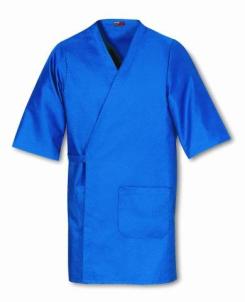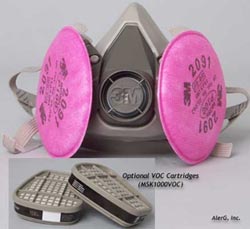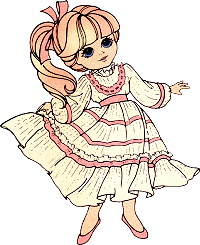|
I am writing this while in the middle of customizing my first custom, and before I had started, I read nearly every tutorial
there was on the web about customizing ponies (and barbies), and I was amazed at the lack of safety information that accompanied
each site.
I worked with a talented individual named Kara McLeod in costume design class, and she helped me realize what safety
proceedures should be taken when handling specific chemicals, even dye and paint.
So here goes. I will update this list as much as I can whenever I can, and any additions might also help, if you have
any, so email them to dedredhed@netzero.com
- Check to see if any of the chemicals you are using have VOC's, aka volatile organic compounds. This can be found in many
industrial strength glues (Super 77, Rubber Cement) and some goo removers (goo gone, goof off). This stuff is basically bad
for you to inhale. Always work in a well ventilated area, or under a hood (vacuum overhead thingie), or outside. Always wear
gloves and a VOC mask. Store these chemicals in a closed cabinet out of children's reach. If you live in California, make
sure this cabinet can be locked; you are in earthquake country.
- When handling dye, always wear gloves, and I think it would be safe to at least wear a painter's mask. Rit dye, which
I can see is used by many customizers, is a particle dye that when stirred does catch into the air. I've had mistakes where
floating particles had landed on drying garments and created unsightly blotches. NEVER prepare or use dye in a place where
food is or will be handled, and never eat or drink when dying.
- When handling a Xacto knife, please please please get the kind that has a safety cap and hold it cutting away from your
body.
- Always wear gloves when coming into contact with bleach. Bleach destroys the protein in your skin and your skin is porous,
so it does enter your blood stream...along with every other chemical that touches your skin. That means every time you touch
dye, super 77, or goof off, it travels into your blood stream, passes through your lungs, heart, liver, and basically everything
else inside you, and these chemicals do carry carcinogens.
- Always wear soled shoes and cover any surfaces you don't want damaged.
- Always be sure to cover the cans and tubes of stuff you use and put them away to protect their shelf life and to make
sure they dont give off any extra fumes.
- Never use pots you will cook in for dying, and never use bowls to hold dye baths that you plan to eat out of again. Buy
some cheapy pots and bowls for your projects, and be sure to clean them thoroughly after each use.
- Do not work with hazardous chemicals around children or pets, and NEVER when you are pregnant or believe you might be
pregnant.
- Wear smocks and aprons, and protective eyewear if you believe you need to. If you wear contacts, wear protective eyewear.
There have been instances wear the invisible floating particles of dye have actually tinted and ruined the contact lenses.
Use unvented goggles for this purpose.
- Have a first aid kit and fire extinguisher in the craft room. Most adhesives, removers, and dyes are flammable and even
explosive.
- NEVER SMOKE WHILE HANDLING CHEMICALS.
Cleanup:
- Clorox Clean-Up is great for dye mishaps, and doesnt turn things yellow. Clean every surface thoroughly.
- Be sure to wash your hands after handling chemicals and their containers.
- Brillo brush your pots and bowls, and be sure to completely wash out bleach or whatever you use to clean.
- I use disposable painters rags for my projects, and when I am done I put them in a bag and throw it away. No need to keep
rags soaked in combustables in your home, or chance them being caught on fire in the washer.
Emergencies:
- If you feel sick or anything, get away from the work and get fresh air.
- Be sure to read all the caution and safety labels before using any chemical.
- Call 9-1-1 if you ingest any chemical or get it in your eye.
An excerpt from "Fabric Painting and Dying for the Theatre" by Deborah M. Dryden:
"Dyes, solvents, and chemicals can enter the body in a number of ways - through contact with the skin, through inhalation,
through ingestion. By taking precautions such as constantly keeping the work area clean, wearing appropriate protective equipment
and clothing, and providing adequate ventilation, the dangers of the substances with which we work can be greatly minimized.
"
Using Masks and Mask Cartridges:
- OV Masks: Organic Vapors - use for solvents, laquers, thinners, and acidic acid (although why you are using acidic acid
for ponies...beats me). Goof Off and other goo gones are solvents and thinners.
- AG Masks: Gas - for gases emitted from bleach. I've never used a mask for bleach, but never breathe in the fumes. I'm
sure this will one day kill me or something.
- DM Masks: Dust and Mist - For dye powders AKA Rit Dyes, and some airbrush inks. Don't want to make the insides of your
lungs turn a certain color? These might help.
| Smock |

|
| A smock will protect you and your clothing from dye, hot water, spilled chemicals. |
| 3M Mask |

|
| Be sure to use VOC cartridges and the mask is tight against your face. |
| Safety Goggles |

|
| You only have one set of eyes, and you cant do any more customs if they arent there. |
| Gloves |

|
| Dishwashing/household chore rubber/latex gloves work fine. |
| Megans Says |

|
| "Safety First!" |
|
